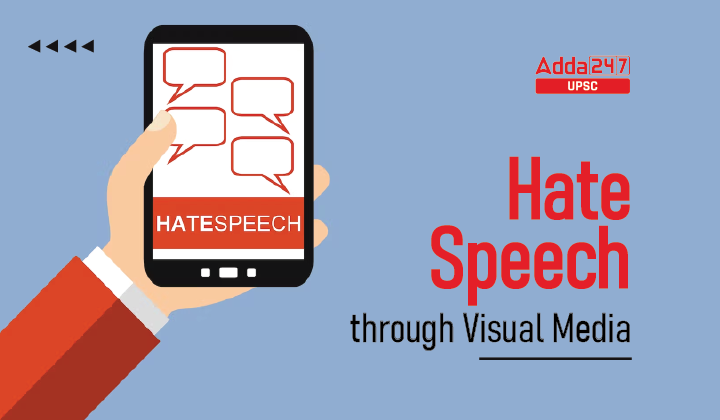Table of Contents
Hate Speech- Relevance for UPSC Exam
General Studies IV- Ethics
Context
Expressing its anguish and displeasure over hate speeches via debates on TV channels, the Supreme Court called the “visual media” the “chief medium of hate speech” and questioned the government why it is “standing by as a mute witness when all this is happening” and treating it as “a trivial matter”.
The bench underlined that “hate drives TRPs, drives profit” basically going against media ethics and said it will consider laying down some guidelines which will hold the field until the legislature comes up with a law on the matter.
Pointing out that “hate speech can be in different forms… sort of ridicule a community” and its spread through the visual media can have a “devastating effect”, the bench of Justices K M Joseph and Hrishikesh Roy, inclined to regulate such debates, asked the Centre to state whether it proposed to come up with any law on the subject.
Hate Speech
The United Nations Strategy and Plan of Action on Hate Speech defines hate speech as “any kind of communication in speech, writing or behaviour, that attacks or uses pejorative or discriminatory language with reference to a person or a group on the basis of who they are, in other words, based on their religion, ethnicity, nationality, race, colour, descent, gender or other identity factors.”
FIVE CORE PRINCIPLES OF ETHICAL JOURNALISM
Truth & Accuracy
Journalists cannot always guarantee ‘truth’, but getting the facts right is the cardinal principle of journalism. Always strive for accuracy, give all the relevant facts we have and ensure that they have been checked.
Independence
Journalists must be independent voices; should not act, formally or informally, on behalf of special interests whether political, corporate or cultural.
Fairness and Impartiality
Objectivity is not always possible, and may not always be desirable (in the face for example of brutality or inhumanity), but impartial reporting builds trust and confidence.
Humanity
Journalists should do no harm. What is published or broadcast may be hurtful, but should be aware of the impact of our words and images on the lives of others.
Accountability
A sure sign of professionalism and responsible journalism is the ability to hold themselves accountable.




 TSPSC Group 1 Question Paper 2024, Downl...
TSPSC Group 1 Question Paper 2024, Downl...
 TSPSC Group 1 Answer key 2024 Out, Downl...
TSPSC Group 1 Answer key 2024 Out, Downl...
 UPSC Prelims 2024 Question Paper, Downlo...
UPSC Prelims 2024 Question Paper, Downlo...





